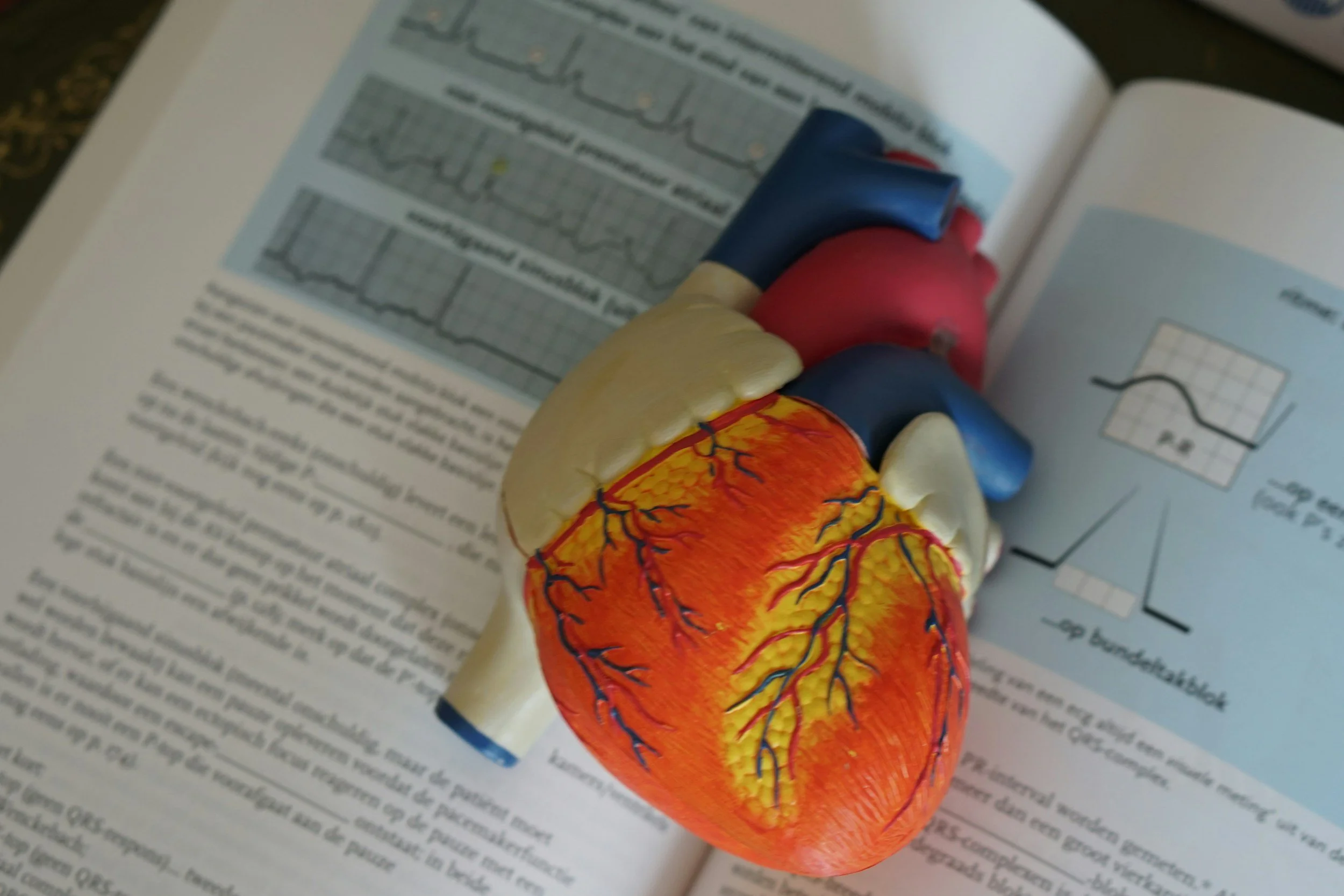
PHYSICAL WELLNESS
the heart’s powerhouse
cardiac muscle
Cardiac muscle is a special type of muscle found only in the heart. It contracts automatically, without you having to think about it, to pump blood through your body every second of your life. Unlike skeletal muscle, you can’t control it consciously — it’s fully involuntary.
Pumps blood throughout the body
Contracts in a rhythmic, steady beat
Sends oxygen and nutrients to tissues
Removes carbon dioxide and waste through circulation
Keeps working without fatigue (unless diseased)
CARDIAC MUSCLE BASICS
Common Terms + Simple Definitions
Here’s a mini glossary for cardiac muscle related words you’ll see throughout the site:
Cardiac Muscle - Muscle tissue found only in the heart
Myocardium - The thick muscular layer of the heart wall that contracts to pump blood
Involuntary Muscle - Muscle you cannot consciously control (like cardiac or smooth muscle)
Pacemaker Cells - Specialized heart cells that generate the electrical signals for heartbeat
Contraction - The tightening/shortening of heart muscle that pumps blood
WHAT CARDIAC MUSCLE WORKS WITH
CARDIAC MUSCLE + OTHER SYSTEMS
Circulatory System → Pushes blood through arteries, veins, and capillaries
Respiratory System → Delivers oxygen from the lungs into the blood and removes carbon dioxide
Nervous System → Autonomic nerves (sympathetic + parasympathetic) control heart rate (speeding it up or slowing it down)
Endocrine System → Hormones like adrenaline influence heartbeat strength and speed
Muscular + Skeletal Systems → Work together with circulation to deliver oxygen and energy to muscles for movement
HealthY CARDIAC MUSCLE…
Your heart beats about 100,000 times a day thanks to cardiac muscle. Without ever resting, it delivers life-sustaining blood to every organ and tissue. Strong, healthy cardiac muscle means a strong, healthy body.
